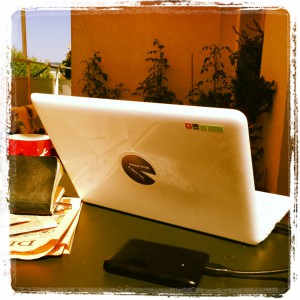This is the abstract for my introductory course into Science and Technology Studies using digital technology as an exemplary case (data, algorithms & prognosis more specifically). I’m already looking forward to heated discussions on social media, AI, self-driving cars, recommender systems and their sociopolitical dimensions and governance implications! (@ the Deptartment of Science and Technology Studies, University of Vienna; in German).
Technik im Alltag am Beispiel von Daten, Algorithmen und Prognosen
Suchmaschinen, soziale Netzwerke und eine Vielzahl von Apps am Handy sind aus unserem Alltag nicht mehr wegzudenken. Sie haben sich in unsere alltäglichen Praktiken eingenistet, gestalten aber gleichzeitig auch welche Informationen wir finden, wie wir über Distanz kommunizieren, und wie wir unseren Körper wahrnehmen, wenn wir zum Beispiel an Gesundheitsapps denken. Sie werfen aber auch eine Reihe gesellschaftspolitischer Fragen auf: Was bekommen wir in Suchmaschinen-Ergebnissen, Newsfeeds und Online-Recommendations zu sehen und was nicht? Welche neuen Formen von Bias und Diskriminierung entstehen dabei? Wie können auf Basis gesammelter Daten Zukunftsprognosen erstellt werden und welche Konsequenzen gehen damit einher? Was bedeutet die zunehmende Quantifizierung unterschiedlicher Lebensbereiche für Individuen und Gesellschaft? Wie können wir global agierende Technologie-Unternehmen und deren Geschäftsmodelle (Stichwort ‘Datenhandel’) regulieren und welche gesellschaftliche Teilhabe ist dabei möglich?
Diese Fragen möchten wir in unserem Kurs anhand von klassischen Einführungstexten aus der Wissenschafts- und Technikforschung (STS), sowie aktuellen Texten aus den kritischen New Media Studies behandeln. In jeder Einheit wird die Lehrveranstaltungsleiterin zunächst ein klassisches STS-Konzept – soziale Konstruktion von Technologie, Politik von Technologie, Actor-Network Theory, Technikentwicklung und Geschlecht, Partizipation etc – vorstellen und zur Diskussion aufbereiten (Pflichttext). Darauf aufbauend werden wir einen Text aus den Themenfeldern Daten, Algorithmen und Prognosen diskutieren, der das jeweilige Konzept zur Anwendung bringt (Referatstext). Dieser wird von Studierenden in der Gruppe aufbereitet und zur Diskussion gestellt/ moderiert. Zusätzlich dazu werden zwei schriftliche Arbeitsaufgaben gestellt, die wir im Seminar diskutieren werden. Voraussetzungen für den Zeugniserwerb sind Anwesenheit, Mitarbeit, mündliche Präsentation (Textdiskussion oder Position in der Bürgerkonferenz), schriftliche Arbeitsaufgaben, sowie die Absolvierung der schriftlichen Abschlussprüfung. Da der Kurs größtenteils auf englischsprachigen Texten basiert sind grundlegende Englischkenntnisse erforderlich. Die Unterrichtssprache ist deutsch.
More information can be found at the University of Vienna website.



